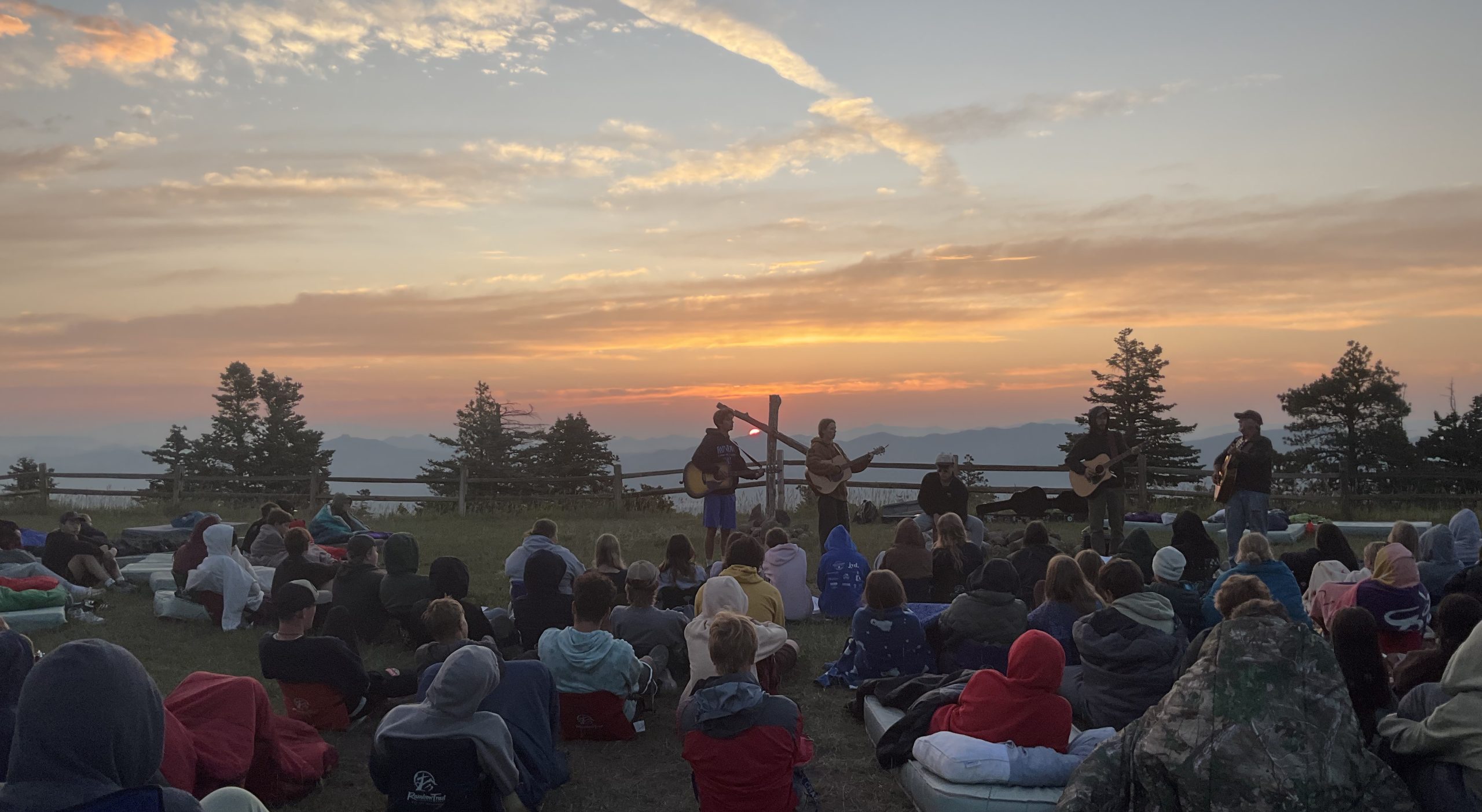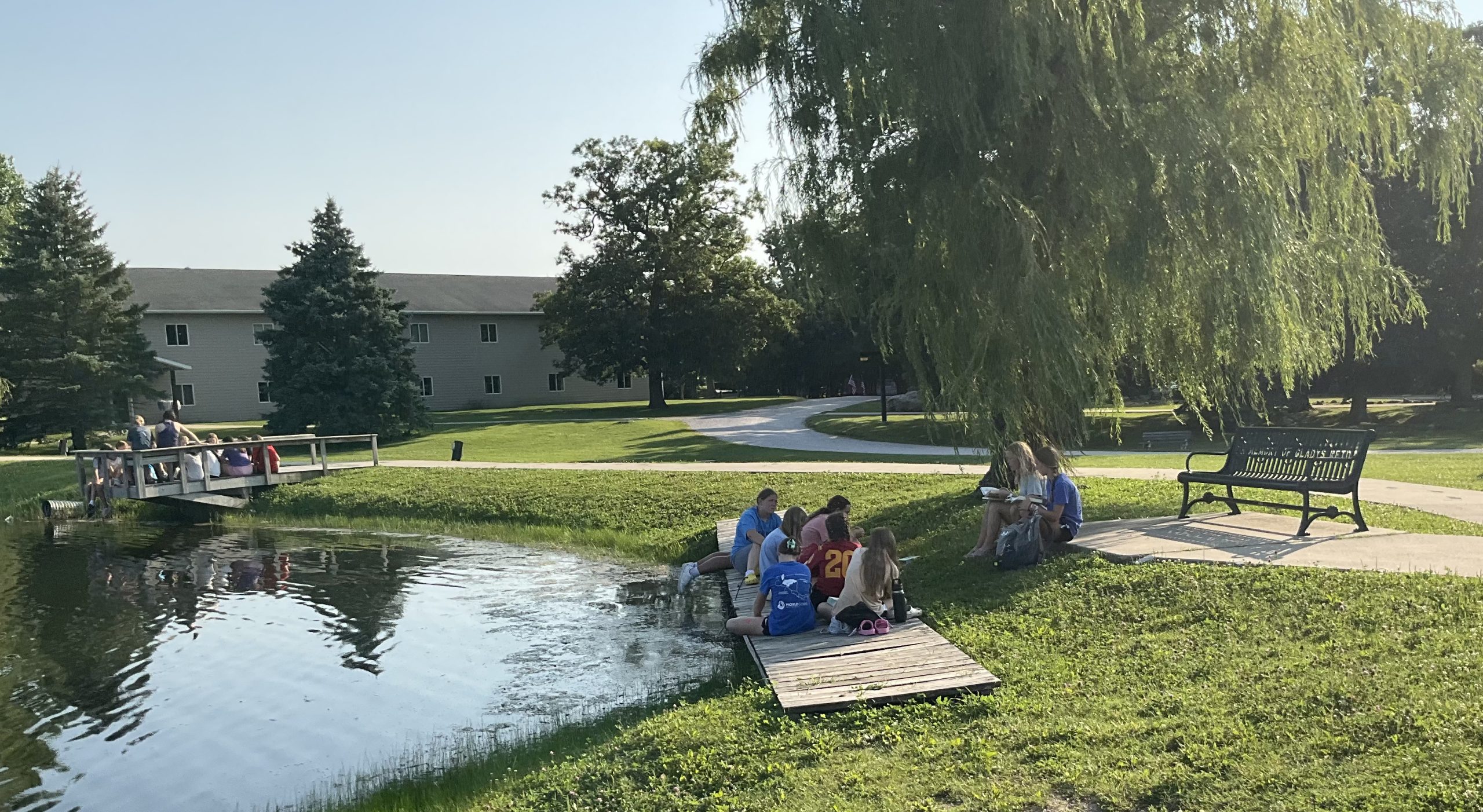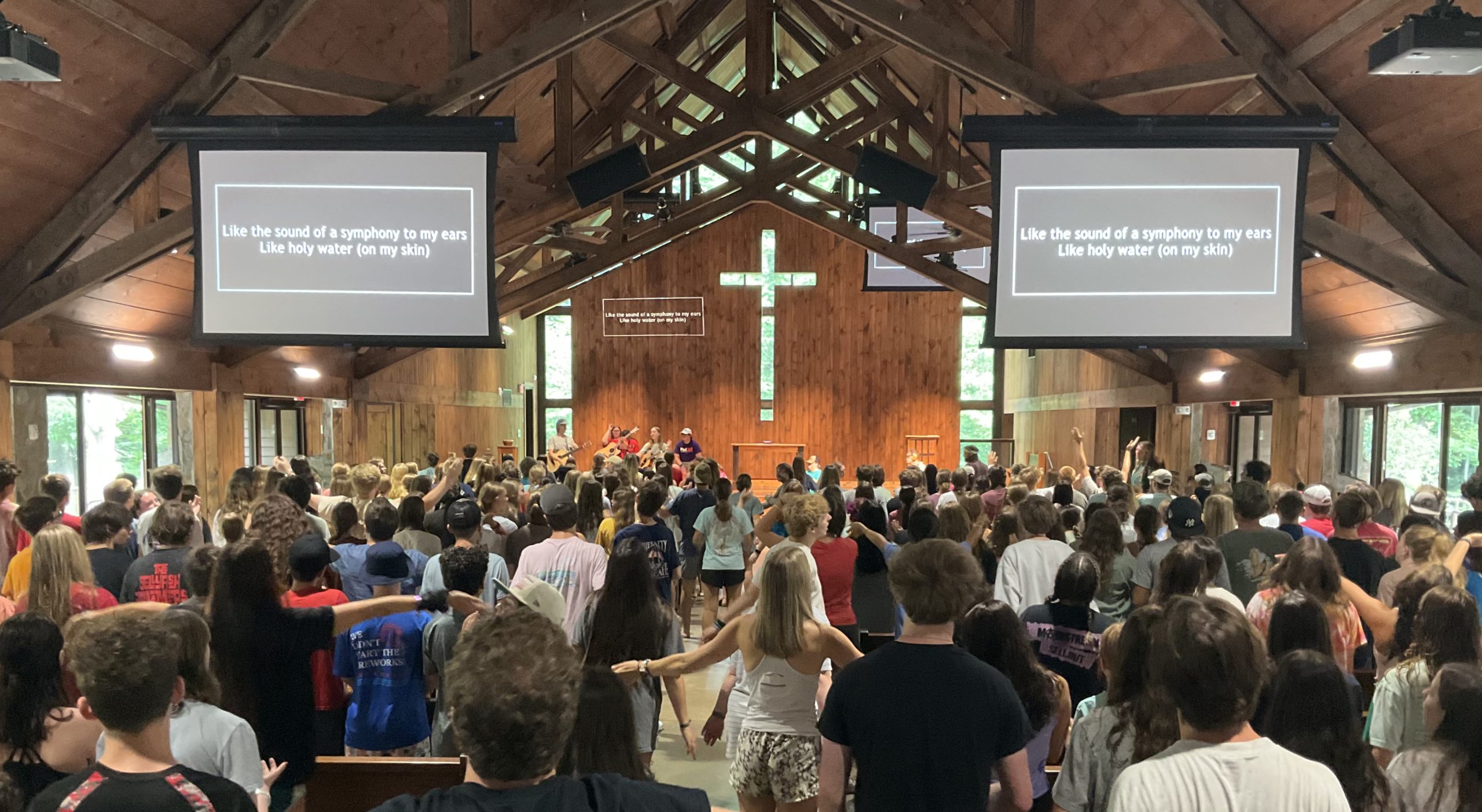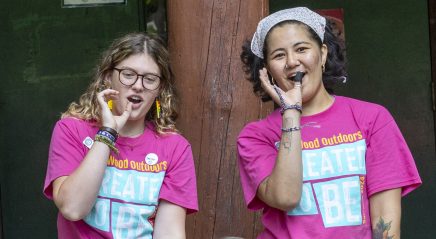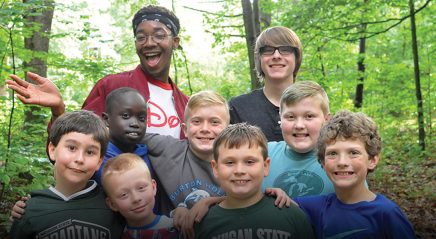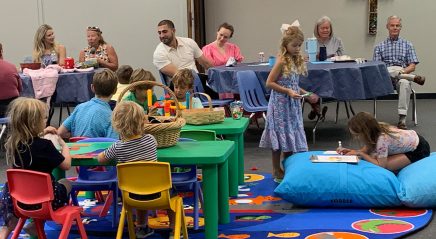“Now I understand where it comes from,” she said with a smile.
I (Jake) was sitting with a youth minister at Rainbow Trail Lutheran Camp in South-Central Colorado. This was her first time here, and youth from her congregation were leading worship. The youth minister had recently begun serving at a large church in suburban Denver, where she had just completed a week of vacation Bible school with more than 300 participants and 150 volunteers. She had been a bit nervous about how Bible school was going to go until she witnessed the engagement and initiative of her middle- and high-school youth volunteers. They had stepped up to help with everything from serving food to leading games and worship, skills learned as campers at Rainbow Trail. Watching the youth plan and lead worship on this day helped her recognize the impact camp was having on her congregation and the young people she served.
While partnership with churches and families seems to come naturally at Rainbow Trail, it’s actually the product of years of hard and intentional work. Dave Jarvis, the camp’s longtime executive director, has carefully cultivated these partnerships, alongside a culture of empowering campers for leadership and service at camp and in the world. His leadership team understands that camp is part of an ecology of faith formation that includes the home and local church.
I visited Rainbow Trail as part of the —Rhythms of Faith Project, which is researching the role of camp experiences as catalysts for family faith formation. Our team spoke with more than 20 camp leaders, surveyed over a thousand parents, and visited 11 camps this summer in search of the most promising strategies of overnight Christian summer camps to influence faith practices in the home.
Confident that we can learn from each other, we designed this project as an ecumenical cooperation between Lutheran, United Methodist and Evangelical camp organizations and ministry leaders. The partnership between Sacred Playgrounds and HoneyRock Center for Leadership Development of Wheaton College) brings together the leading scholars on outdoor ministries from the mainline Christian and evangelical traditions.
Campers consistently show significant and lasting growth in self-confidence, church engagement, devotional practices and an understanding that faith is relevant in their daily lives. But we know that camp cannot be a standalone experience.
I (Meggan) have been involved with outdoor ministries since I attended confirmation camp with my congregation following seventh and eighth grades. Camp strengthened relationships among classmates and with our pastor, introduced us to young adults living out their faith in inspiring ways, and gave us opportunities to talk about faith using our own words and experiences.
My experience wasn’t unique. A recent survey revealed that half of my fellow clergy in the ELCA agree that camp experiences were instrumental in their call to ministry. We now have empirical evidence of the significant and lasting impacts of Christian summer camps on campers and staff. Campers consistently show significant and lasting growth in self-confidence, church engagement, devotional practices and an understanding that faith is relevant in their daily lives. But we know that camp cannot be a standalone experience.
One of summer camp’s greatest strengths is that it is both literally and figuratively unplugged from the home environment. Young people are not only separated from their electronic devices but also from the permanent spaces of home, school and church. This provides them a safe space to develop independence, leadership skills, identity and personal faith. But this separation doesn’t mean disconnection, since camp is part of a network of developmental supports. This requires a paradigm shift for some camp directors, parents and church leaders who may see camp as an isolated or standalone experience.
The most promising strategies begin with a consistent philosophy of ministry. First, faith is not compartmentalized from other programs but is integrated into all aspects of camp. Second, camp is recognized as a temporary community functioning in partnership with a larger ecology of faith formation that includes the home and local church.
Starting with these priorities, camps adopt strategies that engage and equip campers, parents and church leaders. They also go beyond the camp experience itself to engage these audiences away from camp—both as preparation and a follow-up to the camp experience. Finally, the most promising strategies are contextual and adaptive. We encountered some wonderfully creative camp leaders who respond to feedback and adapt their strategies to the specific needs of their constituency.
Camp doesn’t function as a lone drum in the wilderness. Camp is at its best when it seeks rhythm and harmony with the camper’s supporting networks in the home and local church.
At Hidden Acres, an Evangelical Free camp in Iowa, campers learn to navigate Scripture using a simple method with the memorable acronym C.A.M.P. (Choose a passage, Ask questions, Make it personal and Pray). They practice this method throughout the week so it can be continued in the home. At the end of the week, parents receive a devotional resource designed to continue this practice alongside their child at home.
Campers at Caroline Furnace, an ELCA-related outdoor ministry in Virginia, practice the Faith5 devotional method each night in their cabin groups. Their parents are trained to use this method when they arrive at the end of the week. They go home with resources to continue Faith5 in their home.
Camp Glisson, a United Methodist outdoor ministry in Georgia, prioritizes connection to local churches and faith-based reflection in all their activities. As one camper reflected, “It feels like God is all around us, like with us wherever we are.” Worship services are structured as highly experiential versions of what campers encounter in their home congregations. Local clergy appreciate the intentional partnership through such strategies as sending a traveling day camp to local churches, including pastors in camp programming, and receiving lists of their congregation’s attendees who registered for camp. These practices lead to increased participation in both church and camp, along with empowering faith practices in the home.
Camp doesn’t function as a lone drum in the wilderness. Camp is at its best when it seeks rhythm and harmony with the camper’s supporting networks in the home and local church. Ongoing research on adolescent faith formation is abundantly clear that if we (the church) want to have lasting impacts on young people, we must influence the practices and conversations in the home.
The early findings from the Rhythms of Faith Project provide a menu of promising strategies to influence faith in the home. Camps and congregations are partners in these efforts, and we can learn from each other (including those across denominational lines) how to most effectively pass on the rhythms of faith to the next generation.
Click here to learn more about ELCA outdoor ministries.



